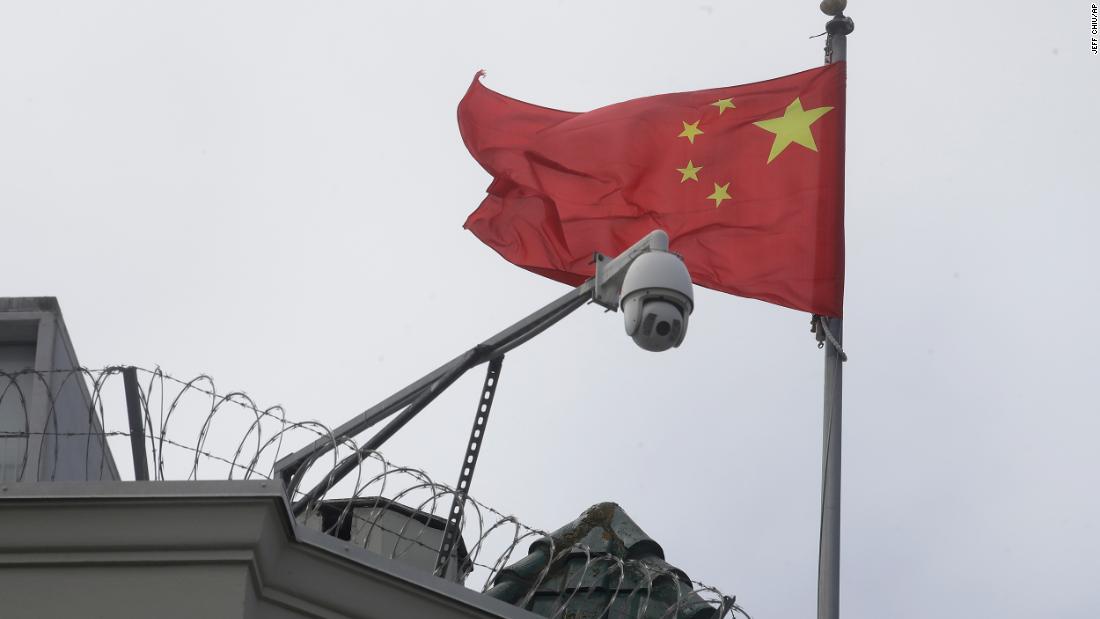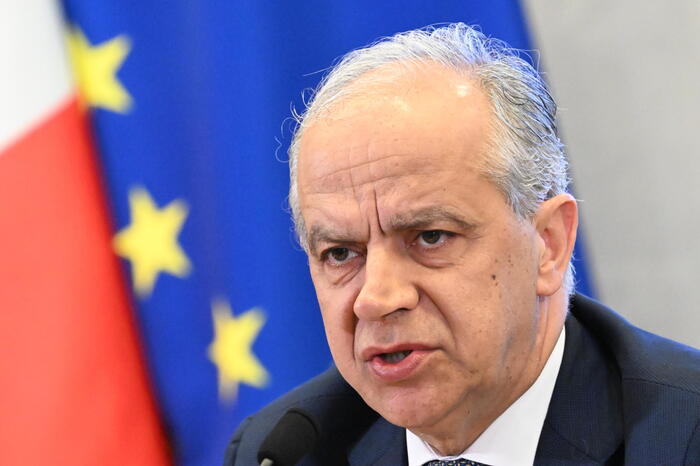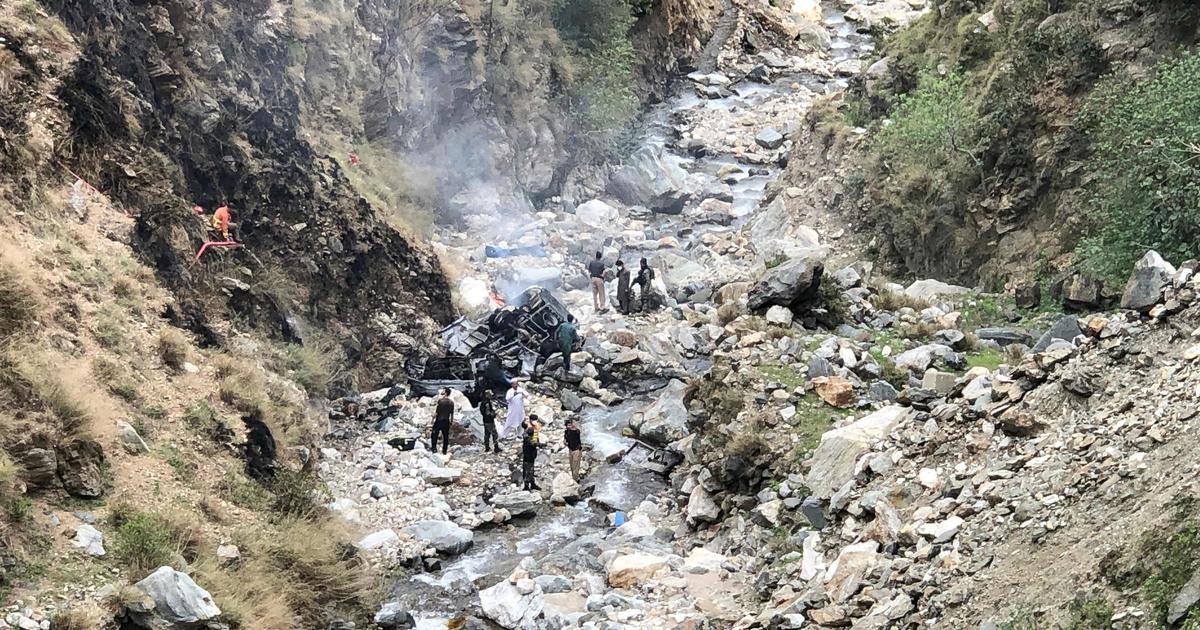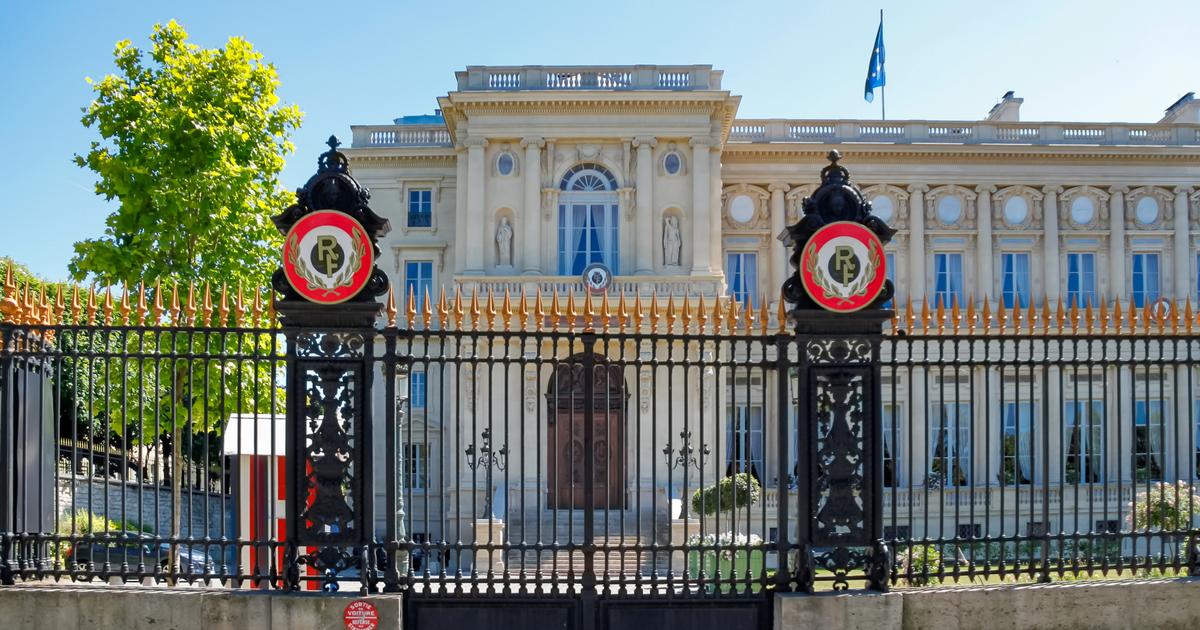China condemns closure of its consulate in Houston 1:39
Hong Kong (CNN) - For almost two decades, after the establishment of the People's Republic of China, the only formal contact between Washington and Beijing was through occasional meetings in Geneva and Warsaw.
"We treat each other like adversaries," former US diplomat Henry Kissinger said last year on the fortieth anniversary of the normalization of relations with China. "We did not have a normal way of contacting the Chinese government, except that there was an embassy in Warsaw where the two sides could communicate with each other and where the ambassadors met occasionally. There were 152 meetings of Warsaw ambassadors who never reached an agreement on anything. ”
While China and the United States have embassies and regular contacts today, the deal appears to be increasingly crude.
This Thursday, another Republican secretary of state, Mike Pompeo, seemed to disprove Kissinger and Nixon's legacy in China, criticizing the "old blind commitment paradigm" and asking "what do Americans have to show now 50 years later?"
- China Retaliates, Orders Cessation of Operations of the US Consulate in Chengdu
Pompeo said this after Washington ordered the closure of China's Chinese consulate in Houston, amid allegations that it was related to espionage and theft of intellectual property. Beijing responded on Friday, ordering the closure of the United States consulate in the southwestern city of Chengdu.
The events come at a time when "many believed that tensions between the United States and China could not worsen," said Natasha Kassam, a China expert at the Lowy Institute and a former Australian diplomat.
The loss of its consulate in Chengdu, he said, "would limit Washington's communication channels with Beijing, as well as the ability of foreigners to monitor and report on what is happening within China."
Kassam likened it to the recent crackdown on Chinese state media in the United States, which led to the expulsion of American journalists working in China, decimating the press corps in Beijing and hampering reports about the world's second-largest economy in between. of a global pandemic.
Many analysts, who spoke to CNN in the wake of the consulate closings, warned of spiraling tensions, as the removal of diplomats and avenues for talks makes it difficult for both countries to understand each other's movements and creates a barrier to future de-escalation.
"The United States and China have spent the past three years pulling software out of the relationship," said Jeff Moon, a former American diplomat in China. "Now we are literally ripping up the hardware."
Mars is the big target of China and the US 2:31Choose sides
Guy Saint-Jacques, former Canadian ambassador to Beijing, said the Trump administration's apparent push for China's economic "decoupling" could have "long-term geopolitical consequences."
Since the economic commitment was promoted with China's accession to the World Trade Organization in 2001, the two economies have come closer and closer. In 2018, before Trump launched a series of tariffs against Beijing in the first bombardment of his trade war, China was the United States' largest trading partner, with total trade worth $ 660 billion, the largest source of imports. of the United States and the third largest export market in the United States.
Many of America's top companies, in industries ranging from manufacturing and technology to Hollywood to the NBA, depend on China as a major source of income. Countless American cultural institutions and schools also operate in China. And as mutual distrust grows, so does the risk to ordinary citizens on both sides.
"When they do a lot of business together, they must work together to prevent problems (and) friction from turning into major crises," said Saint-Jacques.
In his speech, Pompeo spoke of the need for an international coalition against China, which can put pressure on Beijing on issues such as democratic freedoms in Hong Kong, human rights abuses in Xinjiang and unfair trade policies. But the recent record on the effectiveness of this as a tactic is not strong.
Beijing has faced widespread international condemnation, at least by Western powers, as it forced a new security law in Hong Kong earlier this month, but responded by doubling down and threatening countermeasures if countries acted against it. .
Nor is China alone on the world stage. Beijing has been building its own coalition of like-minded countries that can counter any pressure Washington tries to exert.
Again, the Hong Kong situation is illustrative. As 27 western democracies, including the United States and Great Britain, criticized China's movements at the United Nations Human Rights Council (UNHRC), another 53 signed a resolution in support of Beijing.
"The overwhelming victory was seen by experts as a sign that China's human rights achievements have gained more followers and become known to a wider audience," said the nationalist-backed tabloid newspaper in Beijing, The Global Times. "The double standards of some western countries that tried to politicize [the] UNHCR and use human rights issues as weapons to attack China, caused more criticism within the international community."
Saint-Jacques supported the idea of encouraging Beijing to comply with the international norms and rules to which China has adhered through organizations such as the WTO, but was suspicious that the Trump administration created a new division between countries that take a line lasts against Beijing and those who want to maintain influence and economic ties.
Even some close allies of the United States doubt this block-style approach. British Prime Minister Boris Johnson said this week that he will not be pressured "to become a synophobe."
Pompeo's counterpart, Chinese Foreign Minister Wang Yi has been quietly cultivating allies against Washington, even as Beijing has generally avoided the kind of aggressive rhetoric coming from the United States government.
Speaking to Russian Foreign Minister Sergei Lavrov last week, Wang criticized Washington's "Cold War mentality" and called on Beijing and Moscow to "not only push their bilateral relations to a higher level, but also support all countries with an objective and fair stance, rejecting any destructive action for the international order and against the historical trend ”.
China responds to consulate shutdown 1:22"Red meat"
While China has equaled the United States in mounting tensions, Beijing would much prefer to respond contrary, and in the past has been a major driver of increased engagement with Washington, particularly on the economic front. But President Xi Jinping's aggressive and nationalist stance also makes it difficult for China to back down or not respond publicly to Washington's provocations.
This makes it easier for Chinese hawks in the White House to "cause distraction," causing China to spring into action that can then be used to justify an aggressive stance by the United States, when it comes to ties between the two nations, potentially for their own ends. internal politicians.
Speaking to CNN, after the Houston consulate closed, Senator Angus King, a Maine independent, who meets with Democrats and is a member of the Senate Intelligence Committee, said, "There is certainly a good reason to confront China. My concern is that this will increase tension: is it really about taking on China, or does it have something to do with an election in four months? ”
President Donald Trump has made being tough on China a key element of his reelection effort, criticizing his Democratic rival Joe Biden for being soft on Beijing. Pompeo's speech was only the last by a senior US official to attack China, and all of those attacks come as the election approaches.
"Trump has proudly said many times that when he is hit, he returns twice as hard," said Moon, the former diplomat. "Current circumstances encourage him to follow that instinct because getting tough on China is a theme of the presidential campaign and there is broad consensus in Washington for a strong response to China's aggressive behavior."
Moon added that China may have played the card poorly by choosing to escalate tensions and close the consulate in Chengdu instead of Wuhan, as expected, especially if this leads to further escalation by the United States.
The U.S. consulate in Wuhan has been effectively closed for months due to the coronavirus pandemic, so its formal closure would have had no real operational impact and could have allowed tensions to temporarily cool down.
"China derives far more benefits from its consulates in the United States than the United States does in China," Moon said. "Chinese diplomats benefit from broad access to the open society in the United States. Meanwhile, the Chinese government has an official bureaucracy dedicated to systematically obstructing American access to Chinese society. Therefore, closing the consulates is a losing game for China and I am surprised that China has chosen to escalate this situation. ”
The economies of the United States and China are closely interconnected, and both are already suffering from the ongoing trade war. Militarily, there are also several potential hot spots, including the South China Sea and Taiwan, where both countries have recently conducted drills or patrolled.
For years, the South China Sea, in particular, has been a major flash point, with both countries deploying vast amounts of naval power in the region. Given the recent bloody fight over an equally tense border between China and India in the Himalayas, there is no reason to suppose that the current detente will always resist.
Closer to home, US federal prosecutors were searching for a Chinese Army-linked scientist who was hiding at the San Francisco consulate, a situation that shows no signs of disappearing, while Trump himself has threatened to close more consulates. .
Any such move would surely be matched by Beijing, which has now set a precedent with Chengdu, reducing the ability of both sides to avoid potentially serious misunderstandings in the event of a crisis.
China - US tensions














